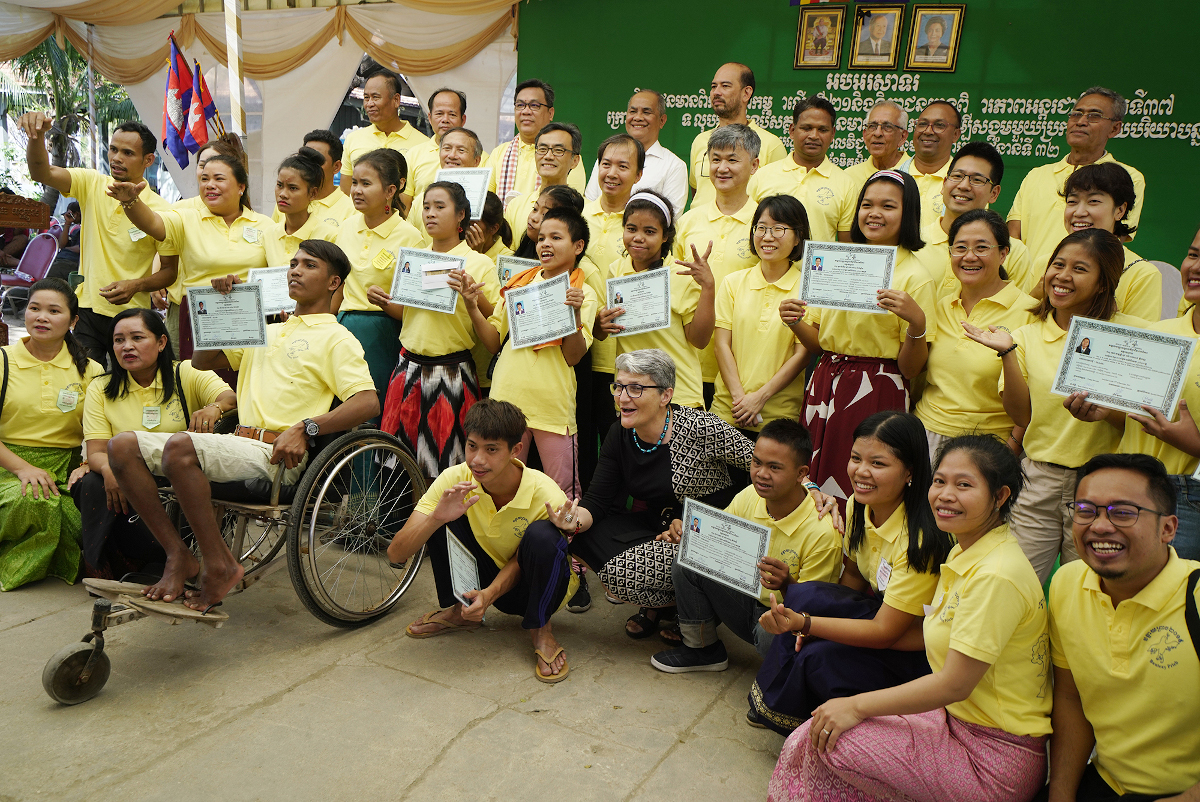 The Jesuit Mission in Cambodia has decided to provisionally close Banteay Prieb, the Jesuit vocational school for people with disabilities in Kandal Province, to make way for the plans of the Cambodian government.
The Jesuit Mission in Cambodia has decided to provisionally close Banteay Prieb, the Jesuit vocational school for people with disabilities in Kandal Province, to make way for the plans of the Cambodian government.
***
Someone with an artificial leg came up and said, “Young Chut Baik Khnear. Salla But Hauy.” (“We are breaking up now. School is closing.”) In fact, this is what we usually hear at Banteay Prieb (BP) every graduation day. This year, however, was different because it was not said by the graduates, but by Yun Pheary, one of the teachers. She has been teaching at BP for 10 years. A graduate of BP herself, she works as a house teacher and health teacher in the dormitory. Students admitted to BP live in the dormitory without exception. They live and do things together, like cooking their own meals, cleaning, and doing the laundry. More than anyone, Pheary has cared for her students and devoted her youth to this school. Had I not heard it myself, I could not have imagined Pheary saying those words. The fact that Banteay Prieb is no longer taking in freshmen students was something nobody ever imagined in the last 30 years.
Since 1991, Banteay Prieb has been a shelter and trusted friend of people with disabilities in Cambodia. In the late 1980s during the civil war, many Jesuits accompanied Cambodians at refugee camps along the Thai border through the Jesuit Refugee Service. Later, some Jesuits and collaborators entered Cambodia to start Banteay Prieb (Center of the Dove) to help people who had been affected by the war.
Fr Phongphand “Jub” Phokthavi SJ was a volunteer at a refugee camp when he and a few others started Banteay Prieb. Recalling his experience, he explained that the spirit of Banteay Prieb is reconciliation.
“Most students who lived together in the early days of Banteay Prieb were soldiers or landmine victims. When one student told how he lost his leg by stepping on a landmine, another student in the same house answered. ‘I was stationed in that area, and the mine you stepped on might have been the one I installed.’ They grabbed each other’s legs and cried and laughed as they talked. That was what Banteay Prieb was,” shared Fr Jub.
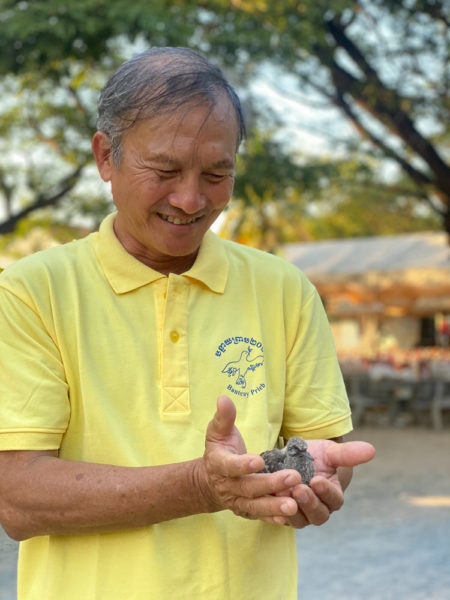
At that time, the students, who had only enemies, violence, and hatred in their hearts, reconciled with the memory of war and their own disability and lack. All those experiences filled the time and space in BP. Those who reconciled themselves with their disabilities went back to their lives after a year of vocational education and community life. Most of them lived completely new lives with the confidence the school had helped them to recover. However, unlike their changed minds, there were graduates who fell before society’s prejudices and limits. Outreach team manager Men Yuth, who started the outreach programme to monitor and support graduates’ lives and independence in 1999, said that if Banteay Prieb were a hospital that heals people, the medicine used here are friends with disabilities, who share the same pain.
“When I first lost my leg and became disabled, I thought there was no hope in my life. But here I met friends who had such pains. I lived with them and I felt better. And I was able to dream that I could be a helper to my friends with the help of the Jesuits and volunteers who always valued us. Every year, at graduation, I say ‘Where you go will be the same as before, but now you are a different person. Believe it,’” said Men Yuth.
This year, Banteay Prieb celebrated a rather special graduation. The government had announced a closing of the centre due to the new regional land development plan of the Cambodian government. The special education class, which started a few years ago, will continue its programme on the new site, but the school will hold off recruiting students and use this time of transition to discern a reorganisation of the school.
Many staff, teachers, and students did not seem to be able to easily accept parting with many memories. Most of all, it was sad that the trees, grasses, and buildings that the students who had grown up here had helped care for will have to go to make way for new developments. Knowing the change that is to happen, more people than ever came to the graduation. Graduates, teachers, local people, Jesuits who are now working in other areas, and former volunteers all came together. The Cambodian Mission came under the Korean Province in 2006, so there were many guests from Korea. The people who had a close relationship with the centre gathered together, filling up the graduation with joy rather than with the disappointment of the school’s closure.
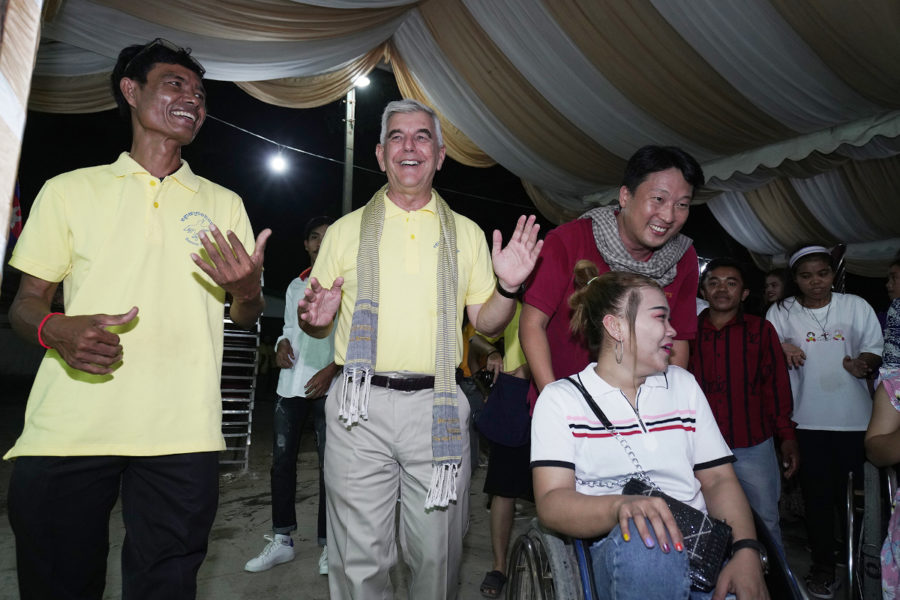
The graduation ceremony, as usual, was a full-day programme. The athletic meet was held after the official graduation ceremony. Games of relay, tug-of-war, and jar burst followed. There was no winner or loser in every game. If someone had a disability in his leg, he could partner with a friend with a disability in his arm. At the end of the sporting event, a dance board took place. Each one danced with excitement; their physical limitations proved no obstacle, giving a strong message that physical disabilities or material poverty cannot interfere with happiness and solidarity. This was how the Banteay Prieb graduation blessed their students’ future.
Just when everyone was laughing and dancing, a surprise performance took place. The sewing production staff put on their costumes and staged a chorus. I felt gratitude for Banteay Prieb in their song. Among those who applauded, some shed tears. The tears continued until dawn the next day when it came time for the graduates to leave the school and return home. They hugged and hugged each other.
In the past, after each year’s graduation, after all the students had left, the trees would remain serenely in the centre. Yes, people’s farewells are always painful, but the reason this graduation is more sorrowful for all is the fact that we may need to say goodbye to the beautiful nature of the place. This year, the only place in the school building that was lit the day after graduation was the ecology team office headed by Fr Gabriel Lamug-Nañawa SJ, country coordinator of Jesuit Service Cambodia. We talked with Filipino volunteer Riesl, who is currently in charge of the environmental teams, about the change in the centre’s natural environment in recent months. Riesl smiled sadly at the question of whether the giant tree in front of the school would disappear.
“Of course there is a perception in Cambodia that old, large trees are valuable. But it is not the same for people doing development. At first, we asked them not to cut down the big tree in the nursery. We even tied a traditional orange cloth on the wooden poles, but it didn’t take long for them to cut down the tree. It’s a sad reality,” said Riesl.
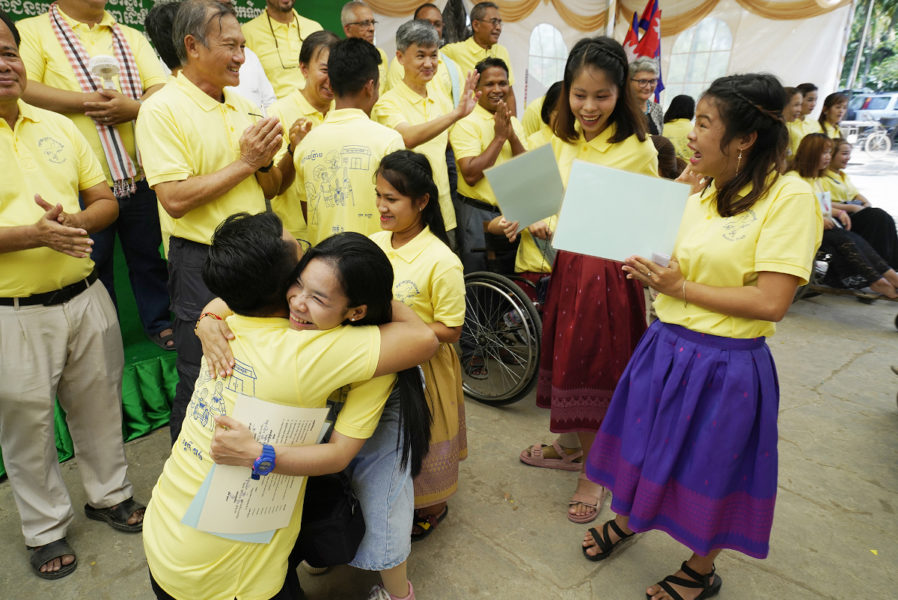 The remaining students and teachers gathered at the Bayon statue in front of the school building to pray for the future of Banteay Prieb. It is a place of gratitude for the spirit and life of all who went through this place, for nature, and for the well-being of the students, staff, and teachers who are now preparing to leave. Fr Rudy Chandra Wijaya SJ, programme coordinator of Banteay Prieb, delivered a message of hope. “Even though the school is closing for a while, we will not forget the spirit of the first Jesuits who served people with disabilities in Cambodia through this place. And from this inspiration we will draw a new beginning.”
The remaining students and teachers gathered at the Bayon statue in front of the school building to pray for the future of Banteay Prieb. It is a place of gratitude for the spirit and life of all who went through this place, for nature, and for the well-being of the students, staff, and teachers who are now preparing to leave. Fr Rudy Chandra Wijaya SJ, programme coordinator of Banteay Prieb, delivered a message of hope. “Even though the school is closing for a while, we will not forget the spirit of the first Jesuits who served people with disabilities in Cambodia through this place. And from this inspiration we will draw a new beginning.”
The special education programme, which started in 2016, will move to a new site and continue to operate. The outreach team in charge of the graduates and the committee tasked with developing a new plan for BP started work shortly after graduation. Sewing production, woodcraft production, and wheelchair production will continue on the current school grounds. Woodcraft production is also planning to produce products using demolition materials from the student dormitories as a sort of remembrance of Banteay Prieb’s past. Kim Phalla, BP coordinator for Special Education, expressed her pride firmly in Banteay Prieb.
“For people with disabilities in Cambodia, there has never been a place like Banteay Prieb. Have you ever found a similar place where one could meticulously understand the lives of people with disabilities and teach them job skills and community life? It is true that the special education we started plays a pioneering role in this country. We need to know how precious it is and keep it going.”
As people prepared to part and move on, I saw hope and gratitude remain throughout Banteay Prieb. In this special place, people have embraced each other’s obstacles and laughed together for three decades.
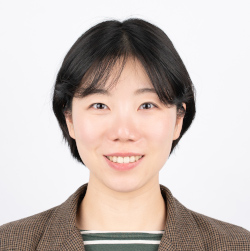 Dawoon Angela Chung is a member of the Communication team of the Korean Province. She attended the graduation ceremonies of Banteay Prieb, having worked as communication officer of the Jesuit Mission in Cambodia for two years.
Dawoon Angela Chung is a member of the Communication team of the Korean Province. She attended the graduation ceremonies of Banteay Prieb, having worked as communication officer of the Jesuit Mission in Cambodia for two years.

